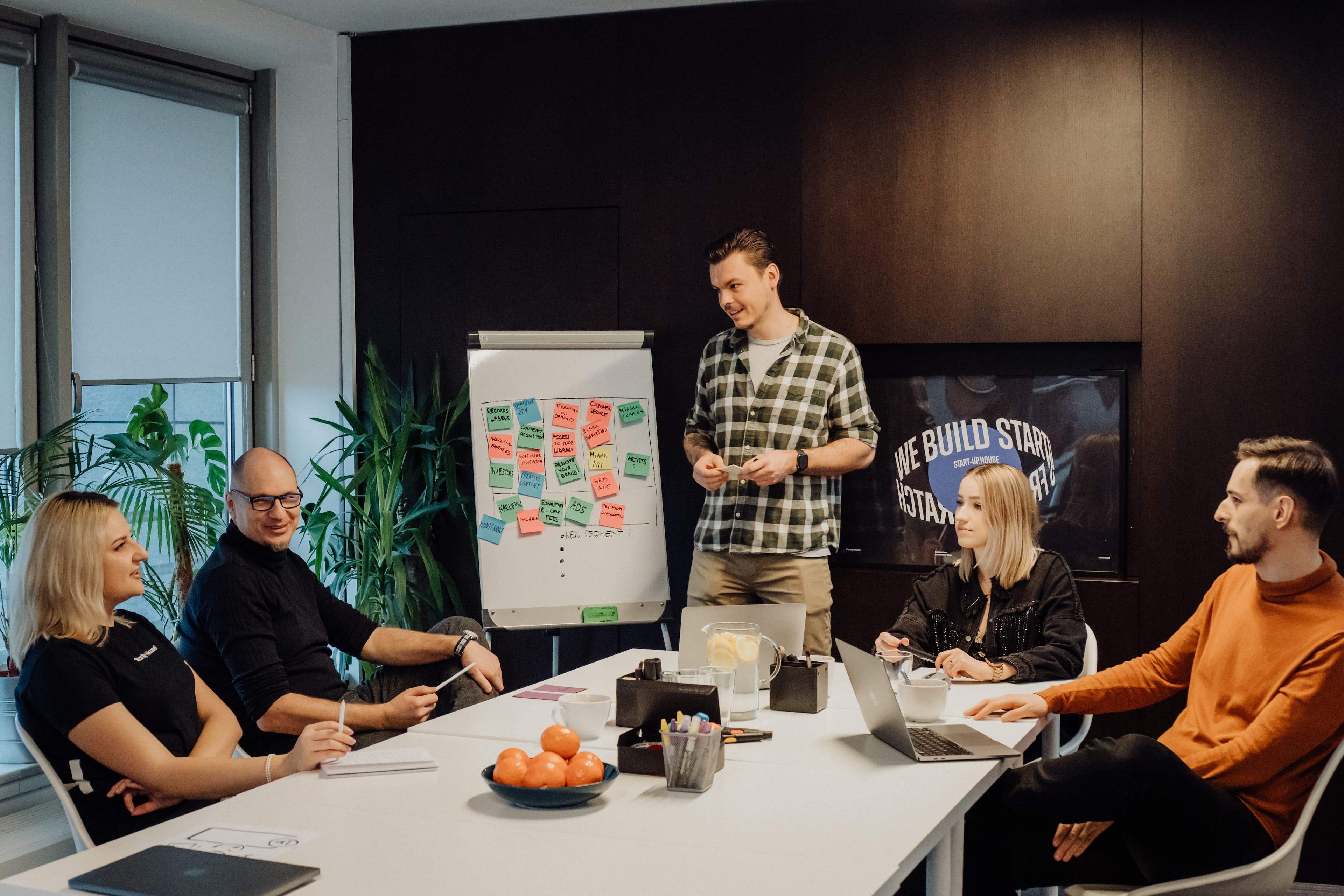Introduction to AI-Driven Automated Testing
Marek Majdak
Apr 14, 2022・5 min read
Table of Content
What is Automation Testing?
Benefits of AI in Automation Testing
Enhanced Accuracy
Reduced Time and Cost
Increased Test Coverage
Improved Defect Tracing
Visual Validation
Self-Repair Involved in the Implementation of Tests
AI Based Test Automation Tools
UI Path Test Suite
Sofy.AI
Tricentis Tosca
The Future of AI in Software Testing
Advantages of Integrating AI in Automation Testing
Improved Accuracy
Going beyond Manual Testing Limitations
Helps both Developers and Testers
Increase in overall Test Coverage
Methods for AI-Based Software Test Automation
Regression Suite Automation
Defect Analysis and Prediction
Self Healing Automation
Manual Software Testing vs AI Software Testing
Top 5 AI Tools for Automation Testing
FAQs
In the rapidly evolving software industry, ensuring the quality and reliability of products is paramount. As such, testing has become an indispensable process in software development. Yet, the conventional methods of testing are no longer efficient in meeting the present demands of the sector. This is where AI-driven automated testing steps in, promising to revolutionize testing processes and dramatically enhance software quality. Before we delve deep into the benefits of AI-driven automated testing, let's understand the basis of automation testing.
What is Automation Testing?
Automation testing, at its core, is the process where the manual testing operations are replaced with scripts or automation tools. This method is implemented to increase the efficiency and effectiveness of testing, as well as to save time and costs in the testing process. With automation testing, testers can avoid repetitive tasks, thus freeing up time to focus on more complex and critical areas of the software.
Benefits of AI in Automation Testing
Automating the testing process with the integration of Artificial Intelligence (AI) has opened up a vast array of advantages. Here we discuss some significant benefits in detail.
Enhanced Accuracy
By leveraging AI in testing, the probability of human error is significantly reduced. AI can analyze data with superior accuracy and precision, which helps in detecting issues that might go unnoticed during manual testing. This leads to the development of a more robust and reliable software product.
Reduced Time and Cost
AI-driven automated testing not only reduces the time required to conduct repetitive tests but also cuts down the associated costs. By automating the testing processes, resources are freed up, which can then be utilized in other vital areas of development.
Increased Test Coverage
With AI, it is possible to run a multitude of complex tests during every test cycle, something that would be extremely time-consuming and challenging to do manually. This increases the scope of testing, ensuring a comprehensive analysis of the software.
Improved Defect Tracing
AI helps in efficient defect tracing by analyzing data patterns and predicting possible issues before they occur. This proactive approach ensures that the software is of high quality and reliability.
Visual Validation
AI empowers the testing process through visual validation, wherein it can identify visual bugs that might be overlooked during manual testing. This process includes verifying the visual appearance of applications and ensuring that the UI elements appear correctly and consistently across different platforms and devices.
Self-Repair Involved in the Implementation of Tests
AI has the capability to self-repair and adjust the testing scripts according to the changing requirements, which leads to an adaptive and evolving testing process, capable of tackling new challenges efficiently.
AI Based Test Automation Tools
The integration of AI in automated testing has led to the development of several innovative tools that promise to change the landscape of testing ai. Tools like Selenium AI are gaining popularity for their ability to harness the power of AI in automation testing. Let's explore some of the top AI-based test automation tools.
UI Path Test Suite
A prominent tool in the automation industry, UI Path Test Suite integrates seamlessly with AI capabilities to offer advanced testing solutions that help in improving the overall software quality.
Sofy.AI
Sofy.AI stands as a promising AI testing platform that utilizes artificial intelligence to automatically test and evaluate the functionality and user experience of software applications.
Tricentis Tosca
Renowned for its continuous testing capabilities, Tricentis Tosca leverages AI to aid in various testing processes including regression suite automation and defect analysis, promising an enhanced level of accuracy and efficiency in testing artificial intelligence.
The Future of AI in Software Testing
AI holds a promising future in the realm of software testing. Its ability to learn and adapt can help in identifying newer testing strategies and methodologies, paving the way for more innovative and efficient testing processes. As we move forward, the integration of AI in automation testing is only expected to grow, with a broader scope of testing, and more sophisticated tools being developed to harness its potential.
Advantages of Integrating AI in Automation Testing
In addition to enhancing the existing processes, integrating AI in automation testing opens up avenues for novel strategies and approaches that can further improve software quality. Here we explore a few significant advantages:
Improved Accuracy
The deployment of AI in automation testing leads to a notable improvement in the accuracy of the tests conducted. By minimizing human intervention, AI ensures that the tests are more precise and reliable, thus leading to a better quality of the final product.
Going beyond Manual Testing Limitations
AI enables testers to transcend the limitations associated with manual testing. Through the use of AI, testers can execute more complex test scenarios, which were previously deemed impossible or too time-consuming to undertake manually.
Helps both Developers and Testers
AI fosters a collaborative environment where both developers and testers can work together more efficiently. AI facilitates continuous testing, thereby assisting in quicker releases and more cohesive teamwork.
Increase in overall Test Coverage
AI assists in expanding the overall test coverage, ensuring a more thorough and comprehensive testing process. This not only ensures a higher quality of the product but also aids in identifying and rectifying potential issues at an early stage.
Methods for AI-Based Software Test Automation
As we continue to delve into the depths of AI-driven automated testing, it becomes essential to understand the various methods and approaches that are employed in AI-based software test automation. Let's explore these methods in detail.
Regression Suite Automation
Regression Suite Automation is a crucial method in AI testing where AI algorithms are used to identify changes and errors swiftly during the regression testing phase, ensuring the stability and functionality of the software.
Defect Analysis and Prediction
AI can analyze the patterns and trends in the data to predict potential defects and issues before they escalate, helping in proactive issue resolution and ensuring a smooth development process.
Self Healing Automation
In self-healing automation, AI assists in adjusting the scripts and aligning them according to the changing requirements and conditions, thus maintaining the relevance and efficiency of the testing process.
Manual Software Testing vs AI Software Testing
In this modern age of technology, the debate between manual software testing and AI software testing has become a focal point. While manual testing involves human testers performing the tests step by step, AI software testing utilizes artificial intelligence to conduct the tests automatically. The use of AI in testing has shown to be beneficial in many ways, surpassing the capabilities of manual testing in terms of speed, accuracy, and efficiency.
Top 5 AI Tools for Automation Testing
With the growth of AI in the software testing domain, several AI tools have emerged that promise to revolutionize the way testing is conducted. Here, we list the top 5 AI tools that are paving the way for a new era in automation testing.
- UI Path Test Suite
- Sofy.AI
- Tricentis Tosca
- Testim.IO
- Selenium AI
These tools stand at the forefront of the AI revolution in testing, promising a future where testing is more efficient, accurate, and innovative.
By integrating AI in the testing processes, organizations can witness a transformative change in the way testing is conducted, fostering a future where software is more reliable, robust, and of superior quality. The scope of testing expands exponentially with AI, offering solutions that go beyond the limitations of traditional manual testing methods.
As we venture further into the digital age, the role of AI in automation testing is poised to become a game-changer, promising a future of innovation, efficiency, and excellence in software development.
FAQs
What is AI-driven automated testing?
AI-driven automated testing integrates artificial intelligence into testing processes, using algorithms and predictive analytics to improve testing accuracy and efficiency, while reducing costs and time.
How does AI-driven automated testing improve accuracy?
AI-driven automated testing reduces human error by leveraging AI algorithms that analyze data with greater precision, identifying issues that might be overlooked in manual testing.
How does AI-driven automated testing reduce time and cost?
By automating repetitive tasks and increasing the scope of testing, AI-driven testing reduces the time and costs associated with traditional testing methods.
What is visual validation in AI-driven automated testing?
Visual validation is a process where AI identifies visual bugs by verifying the visual appearance of applications, ensuring that UI elements appear correctly and consistently across different platforms and devices.
What are some popular AI-based test automation tools?
Some popular tools include UI Path Test Suite, Sofy.AI, Tricentis Tosca, Testim.IO, and Selenium AI.
How does AI facilitate increased test coverage?
AI allows for the running of a multitude of complex tests during every test cycle, enabling a comprehensive analysis of the software, which would be time-consuming and challenging manually.
What is self-healing automation?
Self-healing automation refers to the AI's ability to adapt and adjust testing scripts according to changing requirements, leading to an evolving and adaptive testing process.
How does AI benefit both developers and testers?
AI promotes collaboration between developers and testers by facilitating continuous testing, quicker releases, and more cohesive teamwork.
What is the future of AI in software testing?
The future of AI in software testing is promising, with expectations of more innovative and efficient testing processes, broader testing scope, and the development of more sophisticated tools.
Can AI identify newer testing strategies?
Yes, AI can identify and implement newer testing strategies and methodologies by learning and adapting to changing patterns and trends in software development.
How does AI help in defect analysis and prediction?
AI analyzes data patterns to predict possible defects before they occur, enabling proactive issue resolution and a smoother development process.
How does AI transcend the limitations of manual testing?
AI enables more complex test scenarios to be executed, which were previously deemed too time-consuming or impossible to undertake manually, thus overcoming the limitations of manual testing.
What is regression suite automation?
Regression suite automation is a method where AI algorithms identify changes and errors swiftly during regression testing phases, ensuring software stability and functionality.
What role does AI play in visual validation?
AI enhances visual validation by identifying visual bugs that might be overlooked during manual testing, ensuring consistent and correct visual appearances across different platforms and devices.
How does AI facilitate collaboration in testing?
AI fosters a collaborative environment where both developers and testers can work more efficiently together, aiding in quicker releases and more cohesive teamwork.
Digital Transformation Strategy for Siemens Finance
Cloud-based platform for Siemens Financial Services in Poland


You may also like...

Top Traits of an Outstanding Software Development Team
The success of any software project depends on the team. See the top traits that turn good dev teams into outstanding ones.
Alexander Stasiak
Apr 18, 2025・12 min read

Choosing the Right Software Development Partner: A Practical Guide for Startups
The right software development partner can define your startup’s success. This guide shows how to choose one that fits your goals and needs.
Alexander Stasiak
Dec 30, 2024・10 min read

Understanding Event-Driven Programming: A Simple Guide for Everyone
Explore the essentials of event-driven programming. Learn how this responsive paradigm powers interactive applications with real-world examples and key concepts.
Marek Pałys
Apr 30, 2024・9 min read




